#kaukokaipuu
Text
Diccionario 📚
7 notes
·
View notes
Text
Unknown emotions to the English language - compiled from definitions in the source links at the bottom
:read more:
L’appel du vide: You’re waiting for the train when an inexplicable thought flashes into your mind: What if you jumped off the platform? Or perhaps you’re driving up some precarious mountain pass, when you feel strangely moved to jerk your steering wheel to the right and sail clear off the road. American psychologists in 2012 published a paper in which this feeling was dubbed the “high place phenomenon” (and their study suggested, by the way, that its presence does not necessarily signal suicidal ideation), but the French term for the phenomenon is much more alluring, as French words so often are: l’appel du vide, or “the call of the void.” As the philosopher Jean-Paul Sartre once observed, the emotion is so unsettling because of the way it “creates an unnerving, shaky sensation of not being able to trust one’s own instincts.” It’s a reminder, then, to perhaps not always let your emotions rule your behavior.
Ilinx: There exists a GIF of a fluffy white cat that speaks directly to my soul. In it, the cat is perched atop a desk, and as its human places various objects near its paws — a lighter, a glasses case, a wallet — it pushes each item off the desk and onto the floor. You might say the animal is expressing ilinx, a French word for “the ‘strange excitement’ of wanton destruction,” as Smith describes it, borrowing her phrasing from sociologist Roger Caillois. “Callois traced ilinx back to the practices of ancient mystics who by whirling and dancing hoped to induce rapturous trance states and glimpse alternative realities,” Smith writes. “Today, even succumbing to the urge to create a minor chaos by kicking over the office recycling bin should give you a mild hit.”
Kaukokaipuu: People of, say, Irish descent who have never actually been to the country of their ancestry may still experience an unexpected ache for it, as if they miss it — a strange, contradictory sort of feeling, as you can’t really miss someplace you’ve never been. But the Finnish recognize that the emotion exists, and they gave it a name: kaukokaipuu, a feeling of homesickness for a place you’ve never visited. It can also mean a kind of highly specified version of wanderlust, a “craving for a distant land” — dreaming from your desk about some far-off place like New Zealand, or the Hawaiian Islands, or Machu Picchu, with an intensity that feels almost like homesickness.
Dolce far niente: The pleasure of doing nothing.
Greng Jai: In Thailand, greng jai (pronounced: kreng jai) is the feeling of being reluctant to accept another’s offer of help because of the bother it would call them.
Iktsuarpok: When visitors are due to arrive, a fidgety feeling sprouts up. We might keep glancing out of the window, or pause mid-sentence, thinking we’ve heard the sound of a car. Among the Inuit, this antsy anticipation, causing them to scan the frozen Arctic tundra for approaching sledges, is called iktsuarpok (pronounced: eet-so-ahr-pohk).
Matutolypea: The alarm clock trills. The dawn slips in through the curtains. And we awake, overcome with misery and bad temper. Your grandmother might know it as “getting out of bed on the wrong side.” But it is, in fact, the much more important-sounding matutolypea (pronounced: mah-tu-toh-leh-pee-a). No one quite knows when the word was invented or by whom, but it comes from a combination of the name of the Roman goddess of the dawn, Mater Matuta, and the Greek word for dejection, lype, to give us the dignity of “morning sorrow.”
Umpty: Perkin Flump is in a very bad mood. (The Flumps was a 1970s children’s cartoon presenting the home life of a family of round furry creatures who lived in northern England.) The water is too cold. The floor is too bumpy. His porridge is too lumpy and too sticky. “I feel umpty” he tells his mother. “What’s umpty?” she asks. “It’s a too-much morning” he explains and stomps off to be on his own. Umpty: a feeling of everything being “too much” and all in the wrong way.
Mono no aware: Murasaki Shikibu, a poet and lady-in-waiting in 12th-century Japan, crafted what is often described today as the world’s first novel, The Tale of Genji. Set in the imperial court, it recounts the political intrigues and love affairs of an emperor’s illegitimate son. The book is infused with a quiet feeling for life’s transience, a sensitivity to the beauty of decay and the fading of all living and inanimate things. To read it is to become well acquainted with the feeling the Japanese call mono no aware (pronounced: moh-noh noh ah-wah-ray). Literally translated as the pathos (aware) of things (mono), it is often described as a kind of a sigh for the impermanence of life. "Monoaware" is "the pathos of things." It is the awareness of the impermanence of all things and the gentle sadness and wistfulness at their passing. "Bitter sweetness of fading beauty".
Itadakimasu - means “I will have this." It is used before eating any food to express appreciation and respect for life, nature, the person who prepared the food, the person who served the food, and everything else that is related to eating. "I humbly receive with gratitude".
Kogarashi - is the cold wind that lets us know of the arrival of winter.
Yuugen - is an awareness of the universe that triggers emotional responses that are too mysterious and deep for words.
Shoganai - The literal meaning of "Shoganai" is “it cannot be helped." However, it is not discouraging or despairing. It means to accept that something was out of your control. It encourages people to realize that it wasn't their fault and to move on with no regret. "It is what it is".
Hanafubuki - "flower petal storm" is usually used to describe how cherry blossom petals float down en-masse, like snowflakes in a blizzard. I certainly wouldn’t mind being caught in this storm.
Tsundoku - Booklovers are all too familiar with the truth behind the Japanese word tsundoku. In English, this untranslatable Japanese word describes the act of piling up books that you never get around to reading.
Natsukashii - While the Japanese word ‘natsukashii’ does have an English equivalent in the word ‘nostalgia,’ the use and meaning of the word are quite different. Natsukashii is used quite often in everyday language in Japan. When used, Japanese people are not saying “nostalgia”; they are expressing a feeling that warms the heart because it brings back memories.
Kouyou - Like Hanafubuki is used in Cherry Blossom season, Kouyou is used as Autumn arrives. Kouyou is a way to say, “The leaves are changing colour, so Autumn is near.”
Komorebi - In a single untranslatable Japanese word, ‘Komorebi’ illustrates a beautiful forest with sunlight peeking through the leaves of the trees. What English word could compare? "Light filtering through leaves".
Kawaakari - Just like many untranslatable Japanese words, kawaakari conjures an entire landscape in the mind’s eye. This word refers to light reflected off a river at night or dusk.
Kyouka suigetsu - is a Japanese phrase that can’t be easily translated into English. It refers to something that is visible but can’t be touched, like the moon’s reflection on the water. Or, an emotion that can’t be described in words.
Tsukimi - Japanese festivals often revolve around nature. Tsukimi is the act of viewing the moon, which is often enjoyed en-masse during moon-viewing festivals in September or October.
Mottainai - Having a hard time parting with clothes you never wear or throwing out expired condiments? ‘Mottainai’ is a colloquial term used when confronting the feeling of regret that comes with wastefulness. ‘Mottainai’ doesn’t only refer to items that you toss in the bin, but also perfectly good things that are left unused or sitting in storage. The term can also be used to describe a waste of talents or missed opportunities
Irusu - 'Irusu’, a word combining the Japanese terms for ‘here’ and' ignore’, is used to describe a situation where you’re home but don’t feel like answering the doorbell. If you have a sneaking suspicion that the person at your door is there to sell you another subscription plan you don’t need, you might feel tempted to just ‘irusu’.
#emotions#feelings#language#words#l'appel du vide#ilinx#Kaukokaipuu#Dolce far niente#Iktsuarpok#Greng Jai#Matutolypea#Mono no aware#Japanese#Umpty#the call of the void#contentedness#itadakimasu#kogarashi#yuugen#shoganai#hanafubuki#tsundoku#natsukashii#komorebi#kawaakari#Kyouka suigetsu#tsukimi#mottanai#irusu
6 notes
·
View notes
Text
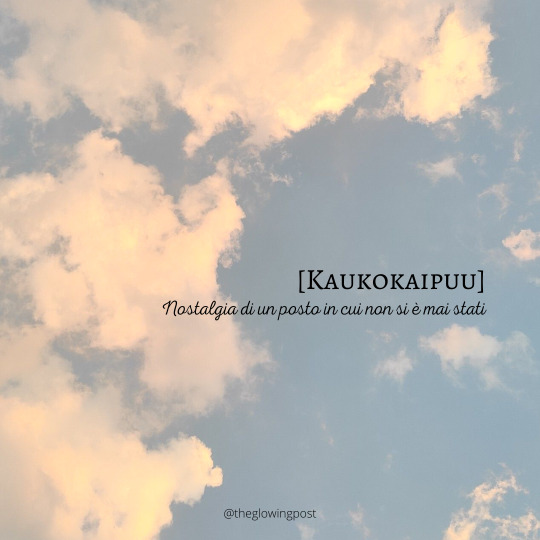
Avete mai sentito parlare di Kaukokaipuu? Questa parola dal suono bizzarro è di origine finlandese, e sta ad indicare la nostalgia di un posto in cui non si è mai stati, una sensazione che quasi tutti abbiamo sperimentato almeno una volta nella vita. Ma perché ciò avviene? Nonostante in molti pensino sia dovuta a memorie di una vita passata, la realtà è molto più semplice. La nostalgia che proviamo in quel momento infatti, non si riferisce a quel luogo specifico, ma a tutti i posti del mondo, ovunque, tranne quello in cui ci troviamo realmente. Questo perché non ha nulla a che fare con un luogo fisico, ma con la sensazione di avere un'alternativa al presente, che in quel momento non ci soddisfa: la possibilità di stare bene, quando si pensa di non poter star bene.
2 notes
·
View notes
Text
— Bem, é um sentimento complexo. Na verdade,é uma palavra finlandesa que nem tem tradução para o português. E tipo quando você sente falta de um lugar que nunca visitou. Kaukokaipuu é tipo aquela sensação de ter um velho amigo de alguém que você acabou de conhecer. Pode parecer bizarro, mas é assim que eu me sinto em relação a você. Como se a gente já se conhecesse há muito tempo ,mas só agora nos encontramos.
julio azevedo
moletom
#arte#livros#autores#frase de livro#trecho de livro#citação de livro#livro nacional#autor nacional#brasil#brazil#lgbt#lgbtqiap+#julio azevedo#moletom
1 note
·
View note
Text
Fernweh
definition (n) : an ache for a distant place ; a longing for unseen places stronger than wanderlust
origin: germanic
—
everyone has an ache of a place unseen.
for some, its the grassy plains with stone ruins from centuries long ago. for others its underwater off the coast of europe in the cities that were lost to the waves. maybe its an era from millenia ago that didn’t leave a trace to modern history, or maybe even for a futuristic city with all-white metal buildings and flying transportation.
unfortunately enough, none of these wanderlust will be able to be visited, as it is either for places long gone, or for places that do not exist. these aches will not be able to be contented or satisfied. only in the dreams of those with a fernweh, with a hiraeth, a kaukokaipuu, a onism, a sehnsucht, will these aches be resolved.
0 notes
Text
Kaukokaipuu
the craving for a different land
0 notes
Text
— Kaukokaipuu.
Ultimamente eu não sei o que dizer, estou fazendo o melhor que posso, estamos todos obrigados a cometer erros.
Ultimamente eu não sei o que estou sentindo, eu gostaria de ser diferente mas estou tentando crescer, depois dos meus traumas terem me atrasado.
Kaukokaipuu, estou com saudade do meu lugar. Porfavor, me fale o que está acontecendo.
Não sei se serei suficiente naquilo que você chama de amor, estou apostando todas as minhas fichas. Parece que está tudo bem.
Pés e mãos firmes longe de onde possa me cortar, páginas após páginas que escrevo para mim e para mais ninguém.
Hoje, me sinto leve por algum motivo ou milagre. Estou lentamente á deriva.
Eu não atendo o telefone se eu não quiser falar. Eu estou sozinha e é bom sentir você. Mesmo que eu não possa te ver.
Eu não sei onde você fica. Mas, quando eu fecho meus olhos, eu sinto você e está tudo bem.
0 notes
Text
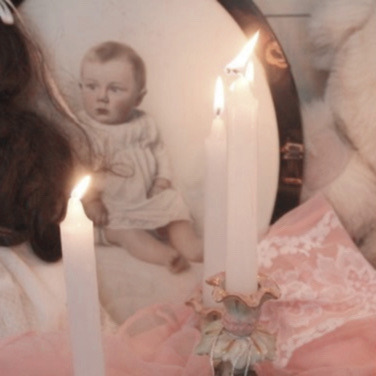


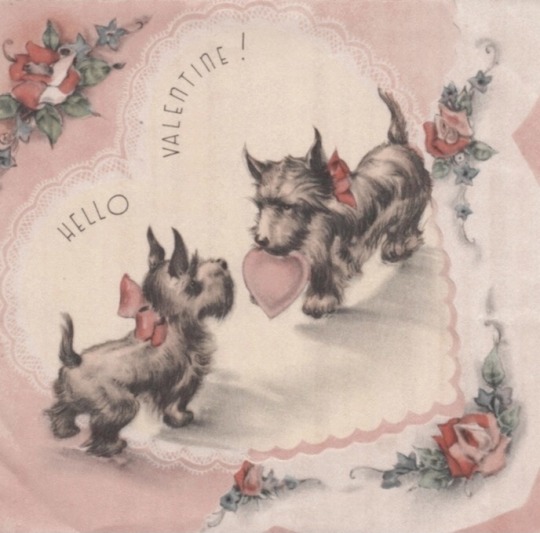




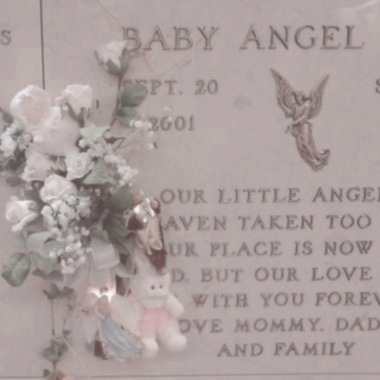
— kaukokaipuu.
(authorial psd, so do not repost the photos on ur pages)
#soft icons#messy icons#soft mooadboard#gg icons#aesthetic#softcore#kpop icons#cute icons#kpop lq icons#rose icons#rose soft icons#rose lq icons#rose moodboard#rose packs#blackpink icons#blackpink soft icons#blackpink lq icons#blackpink moodboard#blackpink packs#icons with psd#kpop icons with psd#kpop gg icons#lana del rey moodboard#lana del Rey aesthetic#pink aesthetic#pink moodboard#pink dress#pinkcore#pink
95 notes
·
View notes
Text
La Kaukokaipuu è una parola Finlandese che descrive la strana emozione che si prova quando si vive la nostalgia di un posto in cui non si è mai stati. Provare quest'emozione significa vivere direttamente la logica dell'inconscio: Il tempo e lo spazio si disgregano.
7 notes
·
View notes
Text
«Questa canzone mi uccide sempre» dissi.
Lei singhiozzava e poi smise: «Perché?»
«Oh, non lo so. Nostalgia. Mi fa sentire nostalgia di un tempo che non ho mai conosciuto. Non ero neanche vivo».
«Questo è quello che ti faccio anch'io...» disse lei.
Era quello che ogni cosa che amavo mi faceva provare.
ANONIMO

La nostalgia è un sentimento legato al tempo. È un sentimento di piacevole struggimento che ci ricorda un luogo familiare, una situazione vissuta con qualcuno, a volte un’epoca della propria vita lontana ed inesorabilmente terminata.
Generalmente la nostalgia riguarda qualcosa del passato, eventi che sono già avvenuti, oppure si può avere nostalgia di una persona con cui non si può più stare insieme nel presente.
Tuttavia è possibile anche avere un sentimento di nostalgia per delle epoche che non abbiamo vissuto (Federico Garcia Lorca l'ha definito il "fatale sentimento di essere nati tardi").
Esistono in alcune culture delle parole che descrivono proprio questo diverso tipo di nostalgia, un sentimento che in molti provano ma che nella lingua italiana non ha avuto l’onore di trovare un nome preciso.
I finlandesi chiamano questa emozione “Kaukokaipuu” parola che descrive il contrario della nostalgia di casa cioè la nostalgia di un luogo che non abbiamo mai visitato ma che sentiamo emozionalmente vicino oppure la strana emozione che si prova quando si vive la nostalgia di un tempo in cui non si è mai vissuti.
Questa parola può spiazzare un po’ perché un luogo od un tempo che non si conosce e che non si è mai visto non riguarda il nostro passato e sembra scontato che la nostalgia debba riguardare qualcosa di vissuto direttamente.
La “Kaukokaipuu” ci fa vivere direttamente la sensazione che il tempo e lo spazio non esistono perché è un’emozione che riguarda il presente così come il passato ed il futuro. Sentiamo un luogo mai conosciuto ed esplorato come qualcosa di vicino e familiare anche se è lontanissimo. Peraltro anche del futuro è possibile provare nostalgia che è nostalgia di un’immagine particolare interiore, di una speranza utopistica forse, che non esiste ancora.
Anche i tedeschi hanno un termine per un'emozione simile ossia “Fernweh” (letteralmente "dolore della lontananza" anche se spesso viene tradotta come "voglia di viaggiare") che significa nostalgia per l'altrove, per qualcosa che non c'è e non si vede ma che prende forma nella mente, che ben può essere un posto lontano mai visitato ma anche un altro tempo.
Anche il portoghese "Saudade" ha un'accezione simile, anche se più indefinita, di sentimento di nostalgico rimpianto, di romantica malinconia, accompagnato da un intenso desiderio di qualcosa di assente in quanto perduto oppure non ancora raggiunto. In molti casi è paragonabile ad una dimensione mistica di accettazione del passato e fede nel futuro.
In questa pagina vorrei provare ad inserire proprio questo. Musiche che mi procurano sentimenti antichi, alcuni spiegabili perché collegate a definiti episodi del mio passato anche risalente oppure a sentimenti di assonanza ad un vissuto simile ma pure a dissonanze rivelatrici del mio sentire, ma molte altre saranno invece proprio richiami ancestrali a tempi e luoghi che non ho vissuto ma di cui provo strane nostalgie, strane malinconie (semplicemente si potrebbe chiamarle, se volete, emozioni).
Accanto a queste non mancherà, ovviamente, anche altro ma lascio al tempo il compito di guidarmi in questo percorso ed a voi la curiosità di cercare eventualmente di comprendere sempre che da comprendere ci sia ed il gioco vi diverta.
Vorrei inserire, in questo percorso, anche i testi ed anche cimentarmi nelle "necessarie" traduzioni (che proverò a rendere il più calzanti possibili al significato autentico anche se alcuni di voi potrebbero avere da ridire, nel qual caso segnalatemelo senza timore, ma anche senza polemiche, e valuterò l'opportunità di modificarle).
Laddove ne individuassi la possibilità proverò anche a fare collegamenti fra i vari brani che, spero, quindi di riuscire ad inserire in una sequenza logica (anche senza richiami espressi o forse sì, ancora non so). Più avanti vorrei inserire anche delle più banali compilation (in questo caso senza testi né traduzioni) di altre musiche (gli "altri suoni" del titolo) che comunque amo o mi affascinano o che temporalmente trovo abbiano un motivo di interesse anche se non abbastanza da cercare di interpretarle (o forse, chissà. nascoste fra di esse anche qualche gemma a me preziosa ma che non ho voglia di commentare. Anche qui a voi, se il gioco vi incuriosisce, di provare a comprendere o di farvi il vostro personalissimo viaggio mentale.
2 notes
·
View notes
Text
Kaukokaipuu
"sickness for places you've never been to, sickness for eras you've never lived in"
3 notes
·
View notes
Text
Kauko: "far away"
Kaukosuhde: long distance relationship (etäsuhde may also be used)
Kaukosäädin: remote control
Kaukoputki: telescope (long-distance pipe)
Kaukokaipuu: wanderlust
264 notes
·
View notes
Text
Resoconto Giorno 46
Stanotte ho dormito benissimo con la mia migliore amica. Il suo letto è comodissimo e caldissimo o forse la sua presenza accanto rende il mio sonno dolce e beato. Zero incubi. Ci siamo alzate verso le dieci per fare colazione e abbiamo passato la mattinata a chiacchierare del più e del meno, di gossip e a cantare canzoni.
Per pranzo abbiamo preparato i maccheroni al ragù che erano buoni quanto quelli preparati da Robb. Dopo aver mangiato la carne abbiamo preparato l’impasto per i cookies e li abbiamo messi in frigo per due ore. Nel frattempo abbiamo pulito le stoviglie e la cucina, cantato canzoni e accarezzato i gatti. Poi finalmente abbiamo infornato i biscotti e li abbiamo mangiati accompagnandoli con il succo ad albicocca. Siamo state benissimo, erano sofficissimi e saporiti! Qualunque cosa noi facciamo stiamo bene, è la cosa più preziosa. Non aver bisogno di altro, se non di lei e lei di me. Abbiamo fantasticato un po’ sul futuro... ci piacerebbe fare un viaggio a Roma, magari trasferirci lì e vivere insieme, oppure fare un viaggio a Berlino e restarci per un po’.
Una volta a casa ho sistemato le mie cose in bagno e messo musica. Mi sentivo particolarmente contenta, ho anche ballato un pochettino... cosa stranissima e imbarazzante perché si sa che sono un tronco. E proprio quando la musica stava per terminare è arrivata una tempesta a ciel sereno.
Kaukokaipuu: il desiderio di essere in un luogo lontano, diverso da quello in cui siamo e in cui forse non saremo mai o la nostalgia di un posto in cui non siamo mai stati, è un po’ il contrario della nostalgia di casa; finlandese.
11 Ottobre
#diario#resoconto#percorso#traguardi#progressi#piccoli passi#migliore amica#incubi#biscotti#baking#napoli#mood#tempesta
15 notes
·
View notes
Text
Kaukokaipuu
It is probably everyone's favourite activity. It's a phenomenon that does fascinating move to our heart and mind. You feel vivid. Alive again.
Travelling gives us new assumption of the world. Beyond what we see on media or through pictures.
That act of gazing vacantly into the distance and the open spaces without any thought. As if the world around you is set on pause for a moment. It's called Boketto in Japanese, if you didn't know. When you find yourslef standing and watching a certain scene as it's taken from an exhibition in Louvre museum. But it's much more vivid. Flamboyant, outrageous and bright. Your pupils are growing and swelling of fascination. It appeals to your soul that it automatically brings a peaceful smile between your cheeks. And you breath deep, deep inside, willing to take out all the negative and heavy left overs you brought with you.
Have you ever felt that feeling? It's called -ukiyo in Japanese. The floating world. Living in the moment detached from the bothers of life.
It's when you first are outside home that you suddenly get the urge to stand up earøy in the morning so you can watch dawn. And that is one thing we all never doubt or regret. The feeling of the refreshing light breeze in the morning, -Tzafrir in Hebrew. The silence that brings you inner peace. It's only then that you understand why we shall let the silence be the art we practice. Because you figure that it's a lot more than the written definition on a dictionary. The amount of strength and power you receive when you close your eyes and listen. The quitter the stronger you hear.
You see when you devote yourself to the nature it takes you to hidden places you can't find on maps. You hear the moving between the leaves creating a whistling sound. You can reach the scatter liquid on a surface and hear the splashing or dropping water. You can feel the trees alive as they creak because of the ting wind. Chirping birds, you can catch the sound of their wings when they jump form bush to other. -Luontolaulo in finnish. Nature inviting you to tuning.
Fascinating don't you think?
TO BE CONTINUED...
#tumblrr#tmblr#tumblrgram#tumblrs#tumblraesthetic#tamblr#tumblrfeed#tumblrposts#tumblr👽#tumblrpost#travel#lights#up#the#end#cool#rainbowmereces#escritosexitosos#escritos#motivacion#wanderlust#nature#adventure time distant lands#adventure#explore
2 notes
·
View notes
Text
Primal OC Challenge - Cain
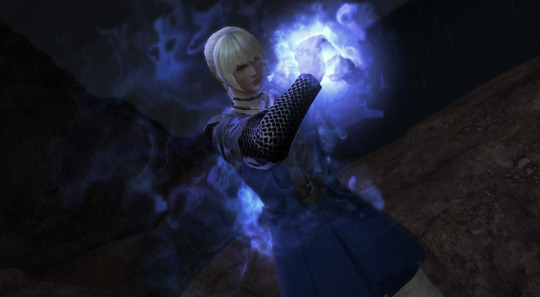
Boss Name: Kullervo (warning: Wikipedia article mentions incest and suicide)
Quest Overview: You finally track down the location of missing crystals. It turns out that Cain has managed to gather them in a single location through persuasion, bribery and misinformation, and before you manage to stop him, he proceeds to summon a primal. As he turns into the vessel of Kullervo, a tragic vengeful hero of northern legends, it falls to you to strike him down before he can wreck havoc on the world that wronged him.
(I saw @mathemagiks's brilliant version of this meme and got inspired. Not tagging anyone, but feel free to tag me if this post inspired you!)
(The rest is behind a readmore because this turned out long. And possibly melodramatic.)
Trial Name: The Quiet Plateau (located in the mountain range near the Silver Bazaar in Western Thanalan)
Battle Music: Nightwish - Ghost Love Score
Appearance: Cain retains his general appearance while transformed into Kullervo, but most of his colour scheme almost inverts. He wears a blue tunic and white trousers, and his hair turns such pale blond that it almost looks white. His eyes become violet-blue, and they emit a faint glow. Instead of a thaumaturge’s staff, he wields a slim two-handed sword.
Start of Battle Quote: “If it’s me against the world, so be it, then!”
Battle Overview: The battle against Kullervo/Cain is split into two phases and an interlude.
In phase 1, Cain will use a combination of lightning and water attacks. Examples include Braided Lightning, where even his hair becomes electrified and he swings his braid in a wide arc, dealing damage and inflicting Paralysis effect on those who get hit. He also uses Surge of Inspiration, causing all players to get hit by a small lightning or water AoEs which should not overlap.
One curious mechanic of phase 1 is Sound the Horn, where Cain blows into a hunting horn and summons one or more spectral creatures depending on what element he used last (and what line he says). The lightning-based variant summons a Thunder Hound, which needs to be tanked by the off-tank and destroyed quickly; the water-based variant calls untargettable Watery Steeds, which will rush forward from the sides of the platform and cause water damage and a Dropsy debuff on those who get hit; the steeds won’t cross the whole platform, though, so there are small safe spots near the middle.
At first, Cain seems determined and defiant. When the players chip away a certain amount of his HP, however, he will start wavering and the interlude begins.
Oh wayward son
Where does your path lie?
Your home is gone
No arms to hold you, voice to guide you
Ocean drowns your cries...
(A sample of the interlude music here)
During the interlude, Cain will be wrapped in an impenetrable black cocoon, and the party will instead fight against Shade of Despair and Shade of Solitude. These Shades themselves do little else than auto-attack, but the party will have to watch out for random AoEs in the meanwhile. The shades must be destroyed before the party’s ‘Hope’ gauge (which starts from 100) reaches zero.
After the Shades are destroyed, the screen turns completely black for a moment, and the party gets hit with Desolation, dealing damage proportional to the Hope they had lost.
“...In the end, I’m still alone.”
As Cain emerges from the cocoon, he loses his boots and gloves, and his braid unravels. His voice lines gain a more desperate and/or bitter edge.
In phase 2, Cain gains a few new skills, such as Calamitous Thunder, which hits the primary target with a large cone attack and a Vulnerability debuff, more or less forcing a tank swap. He will also use Impulsive Strike, which makes him leap on top of the two healers while driving his sword to the ground. This is a stack-up mechanic which requires the party to split before Cain finishes casting, as the second marker will appear only after the first leap (and players don’t have enough time to run away after that). His group-wide AoE skill is called Bitter Waves.
Party Wipe Quote: “Today is the day it all ends.”
Defeat Quote: “Even my best... wasn’t good enough...?”
Once players defeat Kullervo, his aether dissipates, and Cain falls to the ground - his clothes in tatters and hair disheveled.
Loot: Kullervo/Cain drops weapons with a dark colour scheme, bronze and red highlights and Finnish names:
AST: Taivaankansi ("sky lid"; firmament)
BLM: Revontuli ("fox fire"; northern lights)
BRD: Noidannuoli ("witch's arrow"; lower back pain / lumbago)
DNC: Kaunosielu (”beautiful soul”; daydreamer)
DRG: Kaihomieli ("wistful mind"; one who yearns for something unattainable)
DRK: Surmanisku ("killing blow")
GNB: Henkivartija (”spirit/life guardian”; bodyguard)
MCH: Uranuurtaja ("trail-carver"; pioneer)
MNK: Kalmankoura ("corpse's hand"; old name for eagle fern)
NIN: Varjokuva ("shadow picture"; shadow / silhouette)
PLD: Uroteko ("act of bravery") & Jalopeura ("noble deer"; lion)
RDM: Mielijohde ("mind stem"; spontaneous idea or desire)
SAM: Kaukokaipuu ("far-longing"; wanderlust)
SCH: Ajastaika ("time from time"; year)
SMN: Selkokieli (“clear language”; simplified and more precise language)
WAR: Hurmevuo ("stream of blood")
WHM: Lintukoto ("bird home"; paradise-like place where birds migrate)
#primal AU#primal meme#Cain#primal OC challenge#I've had parts of this in my mind for long but this meme allowed me to finish it#I know Thanalan has nothing to do with Finland but *handwaves dismissively*#Kullervo felt like a good primal equivalent for Cain#I probably got a bit carried away oops
8 notes
·
View notes
Text
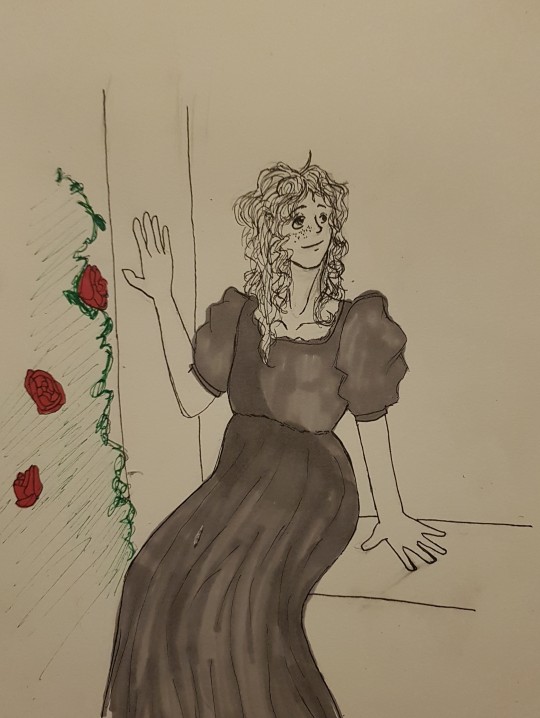
Inktober Day 31: Kaukokaipuu
Kaukokaipuu: The yearning to travel and go far, far away.
Cosette, Les Misérables
11 notes
·
View notes